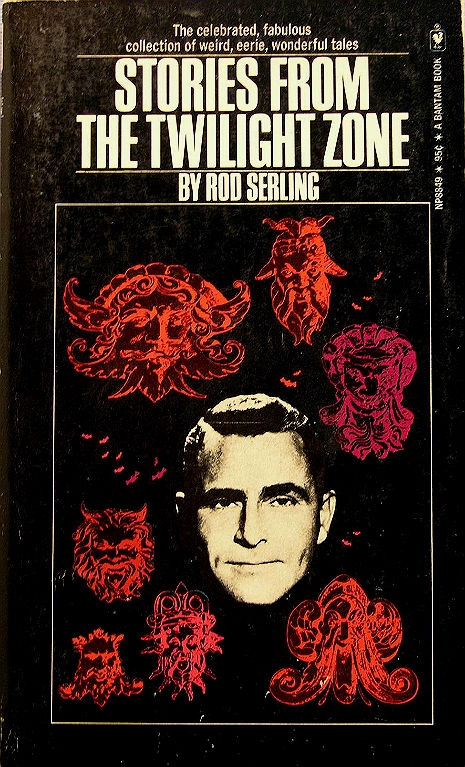
By 1959, Rod Serling had had it with the dumbing down of American television by what he saw as overly sensitive TV sponsors who forced writers to edit scripts with impunity during the boob tube’s early years. Most sponsors wanted zero controversy and nothing to appear in a script that might incline viewers to think “improperly” about a particular brand of cake batter, or car or whatever else was being promoted on a given show. In the fiery discussion below, which aired (according to IMDB) on September 22, 1959, we find Serling on The Mike Wallace Interview talking about his early writing career and the heavy hand of corporate sponsorship that led to his creation of a soon-to-debut science fiction and fantasy television series called The Twilight Zone (the first episode would air a little over a week later on October 2, 1959). A passionate exchange about early TV’s potential, thoughts about what Wallace calls “the battle of the writer to be his own man” and copious on-air smoking ensues.
After spending a few years writing promotional testimonial letters for a Cincinnati television station and making $700 during his best year, Serling was bored out of his mind with the “dreamless occupation.” He set out with his wife for New York City in 1951 to try to make a name for himself as a freelance television scriptwriter. By 1959, Serling had done just that, winning three Emmys and distinguishing himself as being possibly the first television author in history to have a live TV drama (1955’s Patterns) aired twice due to rave reviews and audience demand.
By the way, Patterns is worth checking out. It’s not a great copy, but you can watch it here on YouTube. The Kraft Television Theatre production addresses an episode panic-inducing jealousy brought on by the hiring of a new upstart corporate employee while promoting light and fluffy Kraft cream cheese during the station break.
In the interview with Mike Wallace, Serling discusses being shut down by sponsors for trying to address the Emmett Till case, and receiving many complaints from a “lunatic fringe of letter writers” about an episode of Lassie wherein the iconic collie has puppies. Some wacko viewers felt that the episode promoted sexuality. The complaints lead the station to shy away from presenting the birth of puppies in the future according to Serling. He goes on to talk about the backlash caused by writers using the term “gas chamber” in a Playhouse 90 production of Judgment at Nuremberg (an early version of the 1961 film of the same name) by a sponsor who sold gas stoves. “This, I rebel against,” Serling forcefully declares.
Despite some critics being worried that Serling’s insistence on writing for television (and the money that it provided) was holding him back from making important art (a contention that Wallace brings up on a few occasions), Serling comes across as being deadly serious about his belief in TV’s possibility for greatness. Serious enough, in fact, that he was in the process of trying to get out of a quarter million dollar (obviously big money at the time), three-year writing contract with Metro-Goldwyn-Mayer so that he could devote all of his time to The Twilight Zone where he claimed to have more direct control over the relationship with sponsors. Serling indicates he was only guaranteed 26 episodes of The Twilight Zone, and that he would stand to lose a lot of money if the show didn’t carry on beyond that. Ultimately, it ran for five seasons and 156 episodes were made.